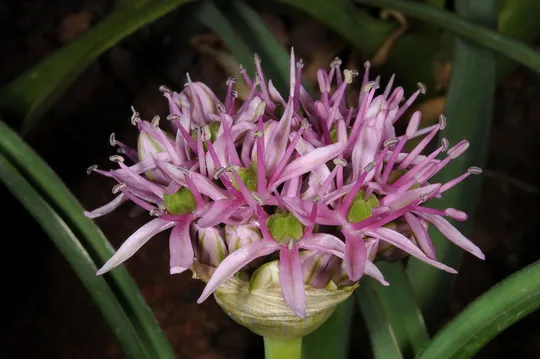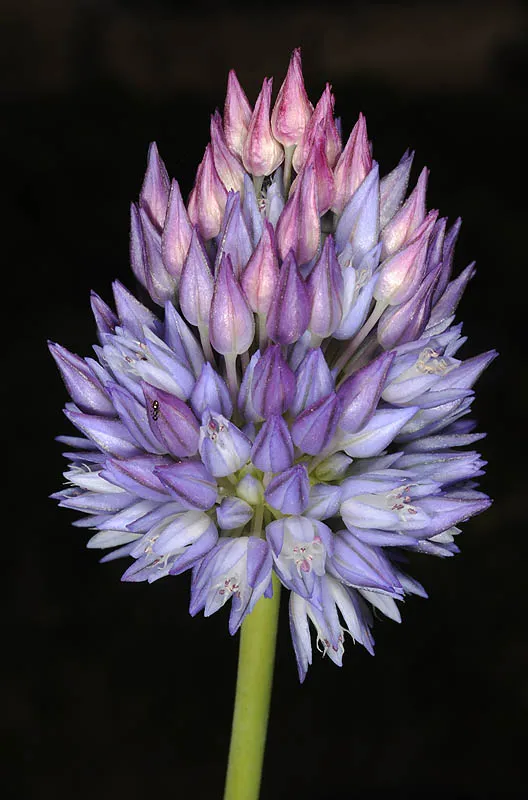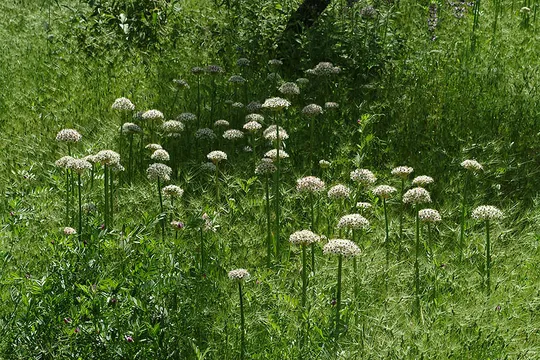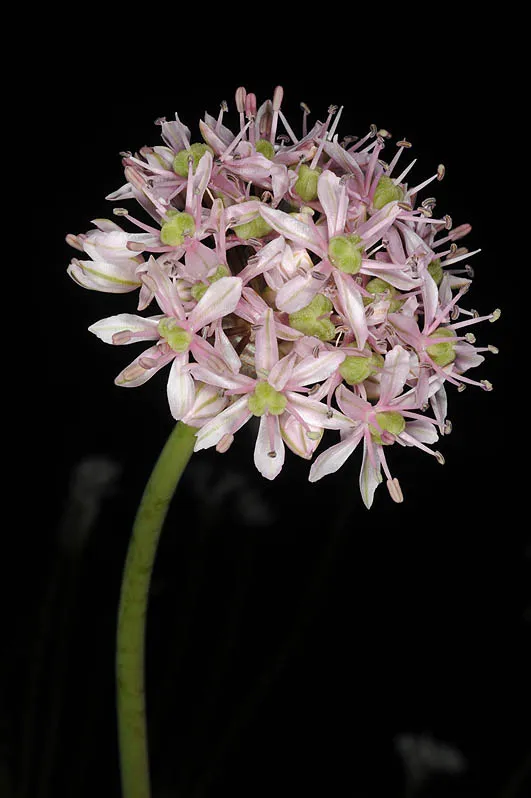White-tunicated Garlic
Allium albotunicatum
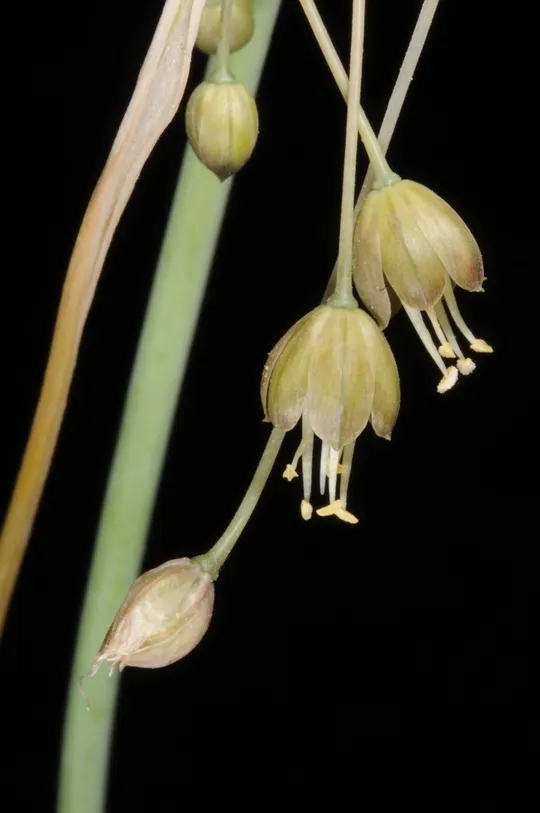
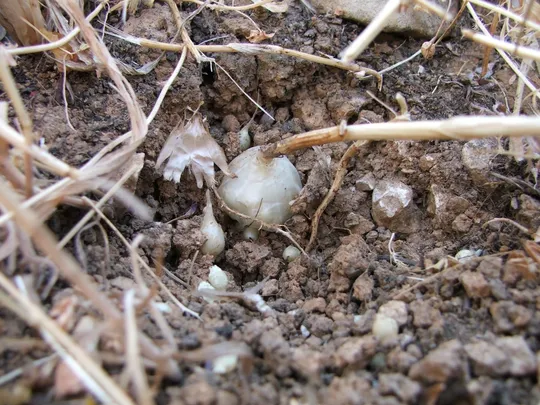
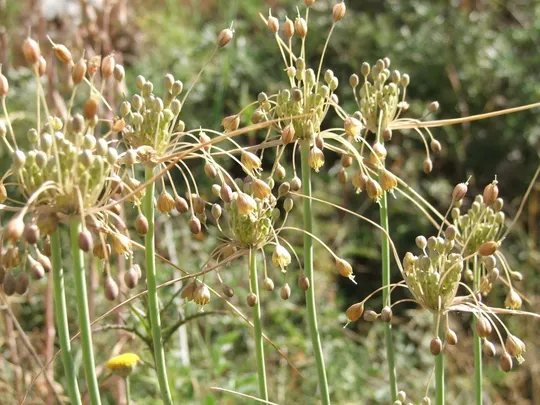
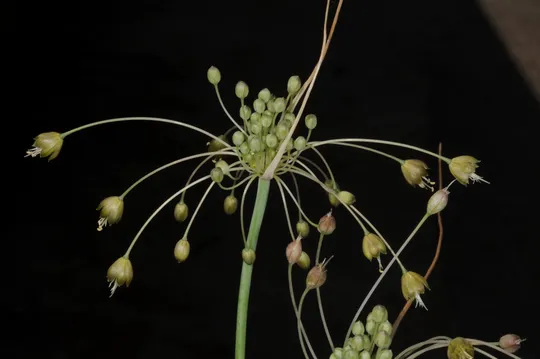
Allium albotunicatum grows in the
Judean Mountains, Samaria and the Samarian Desert, on three sites, one in each
region. It is estimated that there are five sites. In the Judean Mountains it
is found Kiryat HaYovel in Jerusalem, in the remains of
the immigrant transit camp that was located there (Boaz Festman). It is extinct
from Kiryat Moshe and Kiryat Ye'arim, where the plant was found for the first
time in Israel. In Samaria it is noted from the 1970s from four sites, but is
now found only in Ma’ale Levona near Shilo. In the Samarian Desert it was found
twice in Wadi Tirtsa, between Sartaba and Ǧiftlik. According to Coleman (1985)
in the 1970s there were also two sites in the Golan Heights. On Mt. Hermon
(outside the scope covered by this book) A. albotunicatum is common from an altitude of
1600 m to the summit of Mount Hermon at an altitude of 2804 m.
In Samaria and
Judea Allium albotunicatum grows on the
margins of abandoned and cultivated terraces and on scrubland on limestone slopes
at altitudes above 700 meters.
For the genus –
see Allium tardiflorum and A. papillare.
A.
albotunicatum belongs to a special group in the
genus Allium that have very long spathes and inflorescences with florets
that have pedicels whose length varies greatly. This group, section Codonoprasum
(Coleman, 1985), has dozens of species in the Middle East. Eleven of its
species grow in Israel and on the Hermon. All the species have typical hollow
cylindrical leaves, two spathes at the base of the inflorescence whose length
far exceeds the length of the florets with their pedicels, and a late flowering
season, usually in late April and in May. A common phenomenon in the group is
the formation of bulblets near the mother plant. In the typical subspecies of
typical A. albotunicatum plants that grow in Samaria and on Mount Hermon,
bulblets are found near the mother bulb or 1-4 cm away, at the same plane. In their
work on Hermon Allium species, Coleman and Schmida (1977) described two
subspecies of this taxon: a typical subspecies, whose description is identical
to the description above and the Hermon subspecies that has a sparse
inflorescence, a different number of chromosomes and a spathe only 1 to 1.5
times longer than the length of the umbel. This is a subspecies endemic to the
Hermon heights that gradually replaces the typical subspecies growing on Mt
Hermon at altitudes of 1300-1850 meters.
In the Hermon subspecies
the bulblets are located along the lower section of the inflorescence peduncle and
hidden under the membranes of the leaf base. As the inflorescence dries releases
the bulblets are released from among the layers and they are flung tens of
centimeters from the mother plant by the swaying stem. This is a common
vegetative reproductive strategy of the montane Allium species.
·
The number of regions in which Allium albotunicatum
grows has decreased from four to three (it is extinct in the Golan Heights). In
the regions in central Israel where it still found, the number of sites is in
decline compared to the number of known up to the 1970s.
·
The populations are small; 50 plants were counted in the
Kiryat HaYovel population.
·
A. albotunicatum
grows in places affected by human activity and in light of the small population
sizes there is concern of local extinctions due to these activities.
·
The species is not protected in nature reserves.
·
Information regarding its status in other countries in
its range is lacking. It does not appear in other red plant lists.
Known Allium
albotunicatum populations, particularly the one in
Kiryat HaYovel should be monitored, and should be declared a local site for
preservation. Bulblets from this population should be transferred to the
Jerusalem Botanical Gardens.
Allium albotunicatum grows in
Israel, Lebanon and southern Turkey. So far it has not been found in Jordan and
in Syria.
Allium albotunicatum is a rare
geophyte of cultivated or abandoned terraces in the montane regions in central
Israel. It has a fragmented distribution in Israel, which is located at the
southern limit of its global range.
קולמן, פ. 1985. הסוג שום בישראל. עלון רתם מס. 15. הוצאת החברה להגנת הטבע.
Kollman, F. and A. Shmida, 1977. Allium species of Mt. Hermon. I. Taxonomy. Israel. J. of Bottany 26: 128-148.
Current Occupancy Map
| 1000 squre meter pixel | 5000 squre meter pixel | 10000 squre meter pixel | |
|---|---|---|---|
| number of observations | 0 | 0 | 0 |
| in total pixels | 0 | 0 | 0 |
| Family | Liliaceae |
| Classification | On the near threatened species list |
| Ecosystem | Mediterranean |
| Chorotype | Western Irano - Turanian |
| Conservation Site | Kiryat HaYovel, Jerusalem |
| Rarity |
1
3
6
|
|---|---|
| Vulnerability |
0
1
4
|
| Attractiveness |
0
0
4
|
| Endemism |
0
0
4
|
| Red number |
1
2.6
10
|
| Peripherality | N |
| IUCN category | DD EW EX LC CR EN VU NT |
| Threat Definition according to the red book | Near threatened |
 Based on:
Based on:
